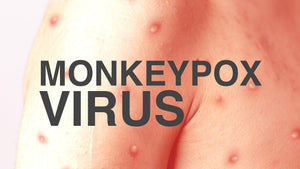
Nipah Virus - What are we dealing with?
A health alert has been sparked all-across Kerala since infection from the Nipah Virus has led to the demise of eleven people in the state. The deadly virus was first discovered in a Malaysian village called Nipah after an outbreak in 1998. Thereafter, two outbreaks were reported in India in 2001 and 2007 in the Eastern state of West Bengal. Even though the virus has been prevalent in the bat population for centuries, the recent outbreaks can be attributed to the increased interaction between bats and humans because of the destruction of the natural habitats of bats and increased urbanization. The incubation period of the disease is between 5 to 14 days and the symptoms of the disease are non-specific initially such as fever, headache, dizziness, muscle pain, sore throat, and nausea. The patient’s condition can then deteriorate rapidly and the patient might slip into a coma or develop encephalitis. Since there is no vaccine currently available to generate antibodies against the virus and no specific treatment apart from supportive intensive care, preventing exposure remains the best approach to avoid contracting this zoonotic viral infection. Preventative measures include:
- Avoid going to areas heavily infested with bats such as abandoned wells and caves.
- Do not eat fruits dropped on the ground or with bite marks as they might have traces of bat saliva on it.
- Avoid drinking unpasteurized fruit juices. Toddy and date sap stored in an open area should also be avoided.
- Avoid traveling to regions where the outbreak is prevalent and strictly follow the advisory issued by health authorities.
- Personal protective equipment must be worn by healthcare workers and caretakers of patients suspected to have contracted the infection.







